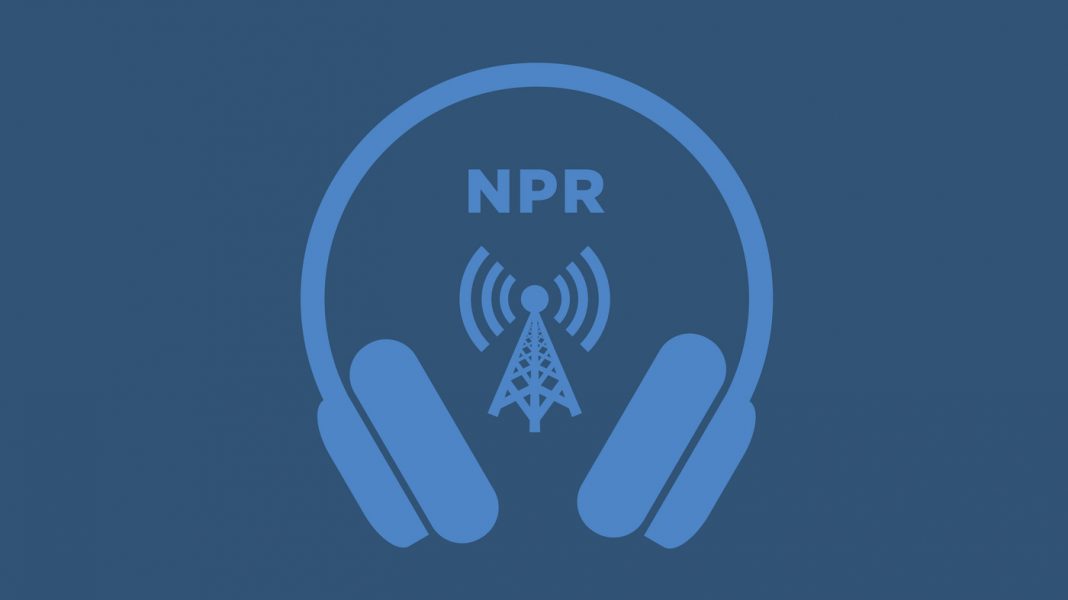The coronavirus is shaping a generation of incoming doctors, as their residency training inside U.S. hospitals brings them face to face with a mystifying disease and frequent death.
MICHEL MARTIN, HOST:
More than 130,000 medical residents are at work in the U.S. These are doctors who have finished medical school and are spending a few years training in hospitals. And as Will Stone reports, many have been thrust unexpectedly to the front lines of a coronavirus pandemic.
WILL STONE, BYLINE: David Lin is in the second year of his residency for internal medicine. He felt comfortable working in the intensive care unit at Mount Sinai in New York City. He knew how to manage a patient on a ventilator, when to adjust the settings, what to do if their kidneys are struggling. Then coronavirus hit.
DAVID LIN: Every single person that rolled in – tubed, unstable, respiratory failure, coded, next one. Same. Next one. Same. And they were anyone – young, old.
STONE: Soon, he was treating these critically ill patients all the time, week after week. And he realized a lot of his clinical knowledge just didn’t apply.
LIN: You’re trying to do something, and nothing is working. And then you see it every day. It’s just been incredibly disheartening.
STONE: He says it’s jarring to see that no one quite understands this virus.
LIN: These leaders in critical care who I respect so much – they’re telling me, like, we don’t know. And that’s terrifying.
STONE: Residents were already a vital part of the medical workforce. Now, hospitals are relying on them more than ever as they pull 80-hour weeks in the ERs and ICUs. In Baltimore, Martha Frances-Brucato is a second-year resident.
MARTHA FRANCES-BRUCATO: The really hard part of our jobs right now is how alone our patients are by necessity.
STONE: She recently reminded her husband of her own medical wishes.
FRANCES-BRUCATO: Remember, I have a living will, you know? I would want to be ventilated as long as there is a chance for meaningful recovery.
STONE: Brucato says she has enough protective gear, like masks, at her hospital. But that’s not the case everywhere. Amy Plascencia is a resident in Brooklyn and helps lead the Committee of Interns and Residents. That’s a union representing 17,000 doctors in training.
AMY PLASCENCIA: Because residents are really at the forefront doing so much of this work, they are in very large numbers becoming ill.
STONE: Her union is pushing for more pay and better policies around sick time and work assignments. She says doctors also need the freedom to speak publicly without jeopardizing their job and professional future. Murad Kahn is a psychiatry resident at Yale New Haven Hospital in Connecticut.
MURAD KAHN: There was already an issue around how much residents work and how much they’re supervised and whether or not that’s good for their mental health. That’s even worse now.
STONE: It’s his first year out of medical school, and Kahn was already a bit nervous. Suddenly, he was treating COVID patients.
KAHN: I actually spent a lot of the first couple of weeks just having a hard time sleeping before going into work, constantly scared at any moment while at work that something bad was gonna happen and that I wouldn’t be able to help the patients that I was taking care of.
STONE: For other residents, a crisis like this is what drew them to medicine. Max Lazarus is a resident in emergency medicine at a hospital on Long Island. Still, Lazarus says you can’t fully prepare to help patient after patient make their final phone call before going on a ventilator.
MAX LAZARUS: And I sat there, and I listened to someone speak to their mom or their husband or wife. You tell them that, hopefully, they’ll wake up, but there’s a chance they may not.
STONE: Lazarus is 29 and remembers two patients in particular.
LAZARUS: They were a little bit younger, a little bit older than me, and they died. And they really stick out.
STONE: For many residents, the legacy of coronavirus may be the sheer emotional weight of these moments. For NPR News, I’m Will Stone in Seattle.
MARTIN: This story comes from NPR’s partnership with Kaiser Health News.
Copyright © 2020 NPR. All rights reserved. Visit our website terms of use and permissions pages at www.npr.org for further information.
NPR transcripts are created on a rush deadline by Verb8tm, Inc., an NPR contractor, and produced using a proprietary transcription process developed with NPR. This text may not be in its final form and may be updated or revised in the future. Accuracy and availability may vary. The authoritative record of NPR’s programming is the audio record.









